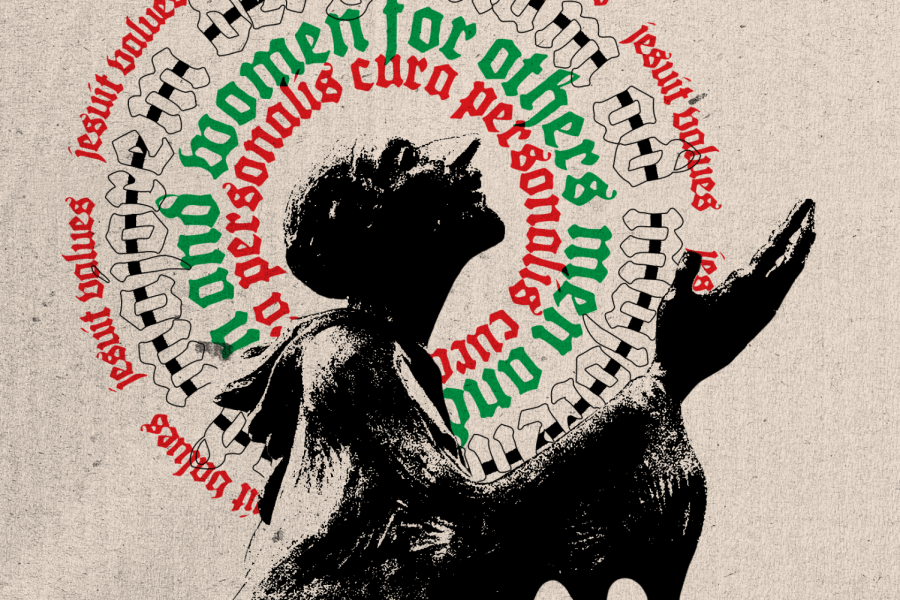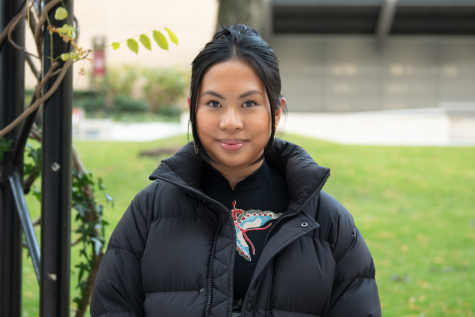The Hypocrisy of Fordham’s Jesuit Values
Fordham does not uphold Jesuit values, causing sparks among the student body
November 15, 2021
In light of recent events in Palestine, Fordham Students for Justice in Palestine (SJP) is needed now more than ever. You may wonder, why do we not have an existing club that advocates for and talks about the issues in Palestine? Unfortunately, when students attempted to form one, the Fordham administration banned the club due to fears about the controversy, effectively silencing an important social justice group at the university. It seems to me that there is a whole new issue generated by this action: Fordham is going against its Jesuit values.
Fordham has categorized and listed out different objectives to describe its Jesuit values. According to the university website, “All of (Fordham’s) various parts seek to insert themselves in the world on the side of the poor, the marginalized, and those seeking justice. It does this in particular by using its academic and professional resources.”
Fordham’s status as a Jesuit institution clearly marks the importance of social justice, and SJP is an organization that not only advocates for the rights of Palestinians but also works to provide services that align with Jesuit values through its mission of advocating for justice and educating the community members. A member of Fordham SJP, who asked to remain anonymous due to concerns about being identified on Canary Mission (an organization that documents people, specifically college students and organizations who advocate for Palestinian rights), and losing their right to enter Palestinian territories, explained in detail what the members of SJP did at Fordham before the club was banned from operating.
“We did a lot of things like unifying. I remember one of the current E-Board members in our informal club spoke to us about the collaboration with the environmentalist club,” the SJP member said.
Not only does SJP align with Jesuit goals, but it does so by creating an inclusive community. After all, by collaborating and working closely with other clubs and organizations that promote important causes, SJP creates unity and inclusion. SJP is a club that can be beneficial to Fordham beyond its Jesuit mission.
After all, in a predominantly white institution (PWI), a lack of diversity suppresses voices. But SJP can shed light on issues and cultural lessons of Palestinian traditions that many people, myself included, may not have been exposed to before. The anonymous SJP member perfectly sums up the club’s objective: to benefit all students, regardless of their background.
I believe that members of SJP have a personal mission to advocate for the rights of Palestinians and promote diversity at a PWI institution.
“We’re not trying to polarize anything … we’re promoting our education, and we’re promoting (a) diverse spectrum (of) views and opinions,” the member explained.
Nafisa Unjum, Fordham College Lincoln Center (FCLC) ’24, said she wants a club like SJP to be represented on campus.
“To prepare students for tomorrow, where they will one day become leaders in the world, it is important they have the experience,” Unjum wrote. “Students should be given the chance to bring this club to life, there are many who wish to participate.”
I am not in awe of the way student voices have been prevented from advocating for basic human rights.
This definition of what clubs and organizations should look like on campus sheds light on Fordham’s last objective of its Jesuit mission, which clearly states, “Students are invited to strive for intellectual excellence in their chosen fields while also embracing Ignatian spirituality, and in doing so, they gain a deep sense of personal mission.”
Now, everyone has their own version of what “personal mission” means to them, and I believe that members of SJP have a personal mission to advocate for the rights of Palestinians and promote diversity at a PWI institution.
I admire the goals that Fordham strives for, but I am not in awe of the way student voices have been prevented from advocating for basic human rights.
“This is the only club on Fordham that speaks to my identity,” the SJP member said. “I feel isolated in this campus. And I feel that I am the only Palestinian on campus, and I think I might actually be. And to see that the only club that would speak to Palestinian issues and Palestinian culture is being restricted, banned — to me this is more than just a ‘bummer.’ It’s upsetting. It’s insulting.”
As a Jesuit institution that delivers the mission of social justice and harmony, it is hypocritical for Fordham to deny SJP a space on campus.
It is humiliating that we attend a school that disobeys its mission. And it is no surprise that Fordham was ranked in the top 10 worst colleges for freedom of speech by the Foundation for Individual Rights in Education. But Fordham does not need to be at that rank forever. The administration can start by acknowledging SJP and allowing their nonpolarizing activism to exist on campus so they can teach other students about Palestinian culture and human rights issues.
If Fordham continues to argue that the club “will cause polarization,” then the administration must explain why it allows clubs like “College Democrats” or “College Republicans” on campus but does not let a club promote awareness about nonpartisan political issues.
As a Jesuit institution that delivers the mission of social justice and harmony, it is hypocritical for Fordham to deny SJP a space on campus. I propose that if administrators continue to bury their heads in the sand, the least that we, as students, can do is share and sign this petition and demand that SJP gets the platform it deserves on campus.















JD • Nov 17, 2021 at 12:38 am
I think the issue with the average Fordham student is the hypocrisy of those who don’t have any skin in the game giving political hot takes that represent other ethnic and racial groups. The article makes plain that the author here isn’t Palestinian and one click of their tagged account on the Observer’s Instagram shows fundraising for a Puerto Rico trip by GO, a controversial Fordham group known for their borderline white savior projects. Like the Observer endorsing racial diversity in Fordham’s leadership while lacking any black staff members, here’s a student immersing like the ‘liberal Karen’ type into the affairs of other deeply oppressed peoples.
The author surely means well but doesn’t know about SJP being a nationwide lobbying organization. Doesn’t know how other student chapters were reprimanded by civil rights groups for harassing Holocaust survivors. Doesn’t know that Fordham SJP twice shared blood libel conspiracy theories on twitter. That they once posted a neo-Nazi political cartoon about Jewish world domination, one previously shared by David Duke on his twitter.
Palestinians in Gaza and the West Bank both deserve tremendous recognition for their strength through great oppressions. And certainly a place to speak their truths. But SJP is a fairly infamous neo-fascist nationalistic American entity completely unreflective of Palestinian values, Jesuit values, or progressive values. The author may want them at Fordham based on a Wikipedia article or an online petition. But there’s a real ignorance in not knowing this organization, one resulting from zero Palestinian or Jewish or Israeli or Middle Eastern. They mean well but fall into a category of the over-speaking college student with good intentions causing massive harm to the marginalized people around.
Good intentions. Estranged perspectives. Bad impacts. And violence toward marginalized groups.